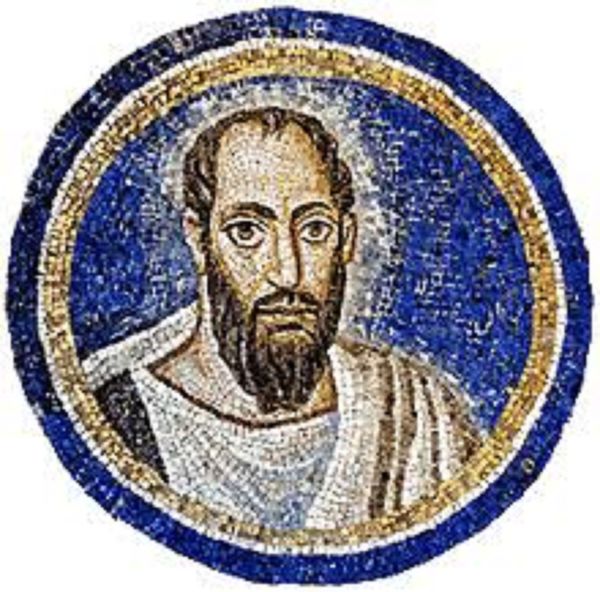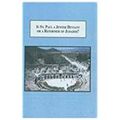Category:Paul of Tarsus (subject)
{{WindowMain
|
|
Pages in category "Paul of Tarsus (subject)"
The following 200 pages are in this category, out of 367 total.
(previous page) (next page)1
- La rappresentatione di san Giovanni & Paulo (1491 Medici), play
- Peregrinatio apostolorum Petri et Pauli (1542 Erasmus), book
- Historia von S. Pauli des heiligen Apostels leben = Vita S. Pauli Apostoli (Life of St Paul the Apostle / 1555 @1555 Major / Agricola), book (German ed.)
- Vita S. Pauli Apostoli (Life of St Paul the Apostle / 1555 Major), book
- Dialogo della conversione di San Paolo (Conversion of St. Paul / 1619 Anerio), sacred dialogue
- The Best and Worst of Paul, and His Character in Both Conditions (1648 Hill), book
- Il trionfo della fede nella conversione di S. Paolo (The Triumph of Faith in the Conversion of St. Paul / 1710 Novi), oratorio
- San Paolo in Atene (St. Paul in Athens / 1740 Bonno / Pasquini), oratorio
- The History and Character of St. Paul (1748 Annet), book
- Il naufragio di San Paolo in Malta (1748 Gristi), play
- (+) Examen critique de la vie & des ouvrages de Saint Paul (1770 @1748 Annet / Boulanger), book (French ed.)
- Horae Paulinae; or, The Truth of the Scripture History of St. Paul Evinced (1790 Paley), book
- Paulus und Jakobus (1822 Neander), book
- Critical Examination of the Life of St. Paul (1823 Annet/Boulanger), book (English ed.)
- The Martyrdom of St. Peter and St. Paul (1834 Burgess), poetry
- Life and Epistles of St Paul (1851 Lewin), book
- Paolo (1857 Gazzoletti), play
- Der Apostel Paulus (1865 Hausrath), book
- Paulus der Apostel Jesu Christi, 2nd ed. (Paul, the Apostle of Jesus Christ / 1866-67 Baur, Zeller), book
- Sénèque et saint Paul (1869 Aubertin), book
- (++) Saint Paul (St Paul / 1869 Renan), book
- Paulus = Saint Paul (1869 Renan), book (German ed.)
- Saint Paul (1869 Renan / Lockwood), book (English ed.)
- San Pablo = Saint-Paul (St Paul / 1869 Renan / Cuesta), book (Spanish ed.)
- L'Apotre Paul: esquisse d'une histoire de sa pensée (The Apostle Paul: A Sketch of the Development of His Doctrine / 1870 Sabatier), book
- Paul, the Apostle of Jesus Christ = Paulus der Apostel Jesu Christi, 2nd ed. (1873-75 Baur, Zeller / Menzies), book (English ed.)
- Quaestiones Paulinae (1882 Loman), book
- Pictures of St. Paul (1885 Tucker), children's novel
- The Life of St Paul (1888 Stalker), book
- St. Paul: His Life and Time (1890 Iverach), book
- Paulus (Paul / 1890-1896 Manen), book (Dutch)
- Spiritual Development of St. Paul (1890 Matheson), book
- Saulus af Tarsus (Paul of Tarsus / 1890 Roos), novel
- The Rabbi's Sons (1891 Weaver), novel
- Живота на апостола Павла = The Life of St Paul (1892 @1888 Stalker / Tomov), book (Bulgarian ed.)
- Woman, Church and State (1893 Gage), book
- Le memorie degli apostoli Pietro e Paolo in Roma (1894 Marucchi), book
- San Paolo (1895 Bovio), play
- (+) St. Paul the Traveller and the Roman Citizen (1895 Ramsay), book
- Saint Paul: ses dernières annees (1897 Fouard), book
- Paul: A Herald of the Cross (1897 Kingsley), novel
- Paul: The Man, the Missionary, and the Teacher (1898 Cone), book
- The Student's Life of Paul (1899 Gilbert), book
- Paul of Tarsus (1900 Bird), juvenile novel
- The Last Years of Saint Paul (1900 Fouard), book (English ed.)
- Die Chronologie des Lebens des Apostels Paulus (1903 Hoennicke), book
- The Story of St. Paul (1904 Bacon), book
- Lux Crucis (1904 Gardenhire), novel
- L'apôtre Paul et Jésus-Christ (The Apostle Paul and Jesus Christ / 1904 Goguel), book
- Paulus: der Mensch und sein Werk (St. Paul, the Man and His Work / 1904 Weinel), book
- The Origins of Christianity (1904 Whittaker), book
- Paulus (Paul / 1904 Wrede), book
- The Crown of Pine (1905 Church), children's novel
- Polus ha-Shaliach, o, Sha'ul ish Tarsus (1905 Levertoff), book
- Saul of Tarsus (1906 Miller), novel
- Pauline and Other Studies in Early Christian History (1906 Ramsay), book
- St. Paul, the Man and His Work = Paulus: der Mensch und sein Werk (1906 Weinel / Bienemann, Morrison), book (English ed.)
- Paulus und Jesus (Paul and Jesus / 1907 Jülicher), book
- Paul = Paulus (1907 Wrede / Lummis), book (English ed.)
- San Paolo, dramma biblico (The Life of St. Paul / 1910 Liguoro), short film
- Epochs in the Life of Paul: A Study of Development in Paul's Career (1909 Robertson), book
- Studies of Paul and his Gospel (1911 Garvie), book
- The Apostle (1911 Moore), play
- San Paolo e i suoi ultimi anni (1920 Fouard / Albera), book (Italian ed.)
- San Paolo e le sue missioni (1920 Fouard / Albera), book (Italian ed.)
- St Paul: His Life, Letters, and Christian Doctrine (1920 McNeile), book
- L'uomo irredento in San Paolo (1922 Ferrari), book
- San Paolo e la sua dottrina di vita e d'amore (1922 Ferrari), book
- Paolo di Tarso, apostolo delle genti (1922 Omodeo), book
- Paul, son of Kish (1923 Henry), novel
- Der Einfluss paulinischer Theologie im Markusevangelium (The Influence of Pauline Theology in the Gospel of Mark / 1923 Werner), book
- The Character of Paul (1924 Jefferson), non-fiction
- San Paolo (1925 Buonaiuti), book
- (+) Paul of Tarsus (1925 Glover), book
- St. Paul and the Church of Jerusalem (1925 Knox), book
- Le berceau de dieu (The Cradle of God / 1926 Granville), feature film
- The Life of Saint Paul: the Man and the Apostle (1926 Foakes-Jackson), book
- Paolo di Tarso (1927 Manacorda), play
- Paul the Jew (1927 Phillimore), novel
- The Scripts of Cleophas (1928 Cummins), vision
- St. Paul in Jewish Thought (1928 Levertoff), book
- Paul among the Jews = Paulus unter den Juden (1928 Werfel / Levertoff), play (English ed.)
- Paul and the Jewish Christians (1929 Peake), book
- Paul in Athens (1930 Cummins), vision
- Paul the Christian (1930 Phillimore), novel
- St. Paul (1932 Knox), book
- The Great Days of Ephesus (1933 Cummins), vision
- São Paulo (St. Paul / 1934 Pascoaes), novel (Portuguese)
- The Legions Go North (1935 Christian), novel
- Il novello giuda (1935 Gelo), play
- Der unbekannte Gott (1936 Eschelbach), novel
- Schemi di lezioni su S. Paolo (1936 Vannutelli), book
- San Paolo = Saint-Paul (St Paul / 1938 @1869 Renan / Siniscalchi), book (Italian ed.)
- When Nero Was Dictator (1939 Cummins), vision
- Paolo apostolo martire (Paul, Apostle and Martyr / 1939 Giordani), book
- Mi-Yeshu `ad Paulus (1939-1940 Klausner), book
- St. Paul and the Church of the Gentiles (1939 Knox), book
- Paul and His Predecessors (1940 Hunter), book
- I, Paul (1940 Miller), novel
- Paavali Tarsolainen (1945 Gulin), book
- Paul, Apostle and Martyr = Paolo apostolo martire (1946 Giordani / Maranzana / Williamson), book (English ed.)
- San Paolo (1946 Penna), book
- Paolo apostolo (Paul the Apostle / 1946 Ricciotti), book
- Dzieje Pawla z Tarsu (Acts of Paul of Tarsus / 1947 Dabrowski), book (Polish)
- The Travels and Adventures of St. Paul (1948 Young), novel
- Life of St. Paul Series (1949 Coyle), feature film
- (+) Swiety miecz (The Sacred Sword / 1949 Dobraczynski), novel
- L’Apostolo (1950 Asch / Castigliano), novel (Italian ed.)
- I Appeal unto Caesar (1950 Cummins), vision
- Von Jesus zu Paulus (1950 Klausner / Thieberger), book (German ed.)
- Il giudeo di Tarso = The Jew of Tarsus (1950 @1946 Schonfield / Diana, Gabrieli), book (Italian ed.)
- Perilous Voyage (1951 Ball), novel
- The Tentmaker (1951 Berstl / Graves), novel (English ed.)
- Paulus aus Tarsos (1951 Ellert), novel
- San Paolo = Saint Paul, conquérant du Christ (Saint Paul, Apostle of Nations / 1952 Daniel-Rops), book (Italian ed.)
- Encounter: The Vigil (1953), TV episode
- (+) Paul = Paulus (1953 @1951 Dibelius, Kümmel / Clarke), book (English ed.)
- Le chemin de Damas (1953 Glass/Paulhac), novel
- Paul the Apostle = Paolo apostolo (1953 @1946 Ricciotti / Zizzamia), book (English ed.)
- The Cross and the Eagle (1954 Berstl / Graves), novel (English ed.)
- (+) St. Paul and Epicurus (1954 De Witt), book
- A Világmegváltó Eszme (1954 Kerecseny), novel
- La gota de mercurio (The Drop of Mercury / 1954 Núñez Alonso), novel
- El genio literario de San Pablo (1959 Brunot / Boada), book (Spanish ed.)
- And Walk in Love (1956 Buckmaster), novel
- Paulus in Babylon (Paul in Babylon / 1956 Hohoff), novel
- The Magnificent Three (1956 Petitclerc), novel
- Der Bote der Königs (1957 De Wohl / Hutton), novel (German ed.)
- The Glorious Folly (1957 De Wohl), novel
- Le chemin du Seigneur (1957 Poirier), novel
- Saint Paul et son message (Saint Paul and His Message / 1958 Brunot), book
- San Paolo e il suo messaggio = Saint Paul et son message (1958 @1958 Brunot), book
- Saint Paul and His Message = Saint Paul et son message (1959 Brunot / Matthews), book (English ed.)
- San Pablo y su mensaje = Saint Paul et son message (Saint Paul and His Message / 1959 Brunot / Ruiz), book (Spanish ed.)
- Paul of Tarsus (1960 Harington), TV mini-series
- San Paolo = Saint Paul et le mystère du Christ (1960 @1956 Tresmontant / Rossi), book (Italian ed.)
- Paulus, die Pharisäer und das Neue Testament (1961 Baeck), book
- Paul and His Recent Interpreters (1961 Ellis), book
- Dans le sillage de Saint Paul de Césarée à César! (1961 Frank), novel
- Saint Paul (1961 Poirier / Barett), novel (English ed.)
- Paul and Seneca (1961 Sevenster), book
- Daniel to Paul: Jews in Conflict with Graeco-Roman Civilization (1962 Cornfeld), book
- The Life of Saint Paul (1962 Fosdick), non-fiction
- The Hidden Splendour (1962 Goldthorpe), novel
- Ideas maestras de San Pablo (1963 Amiot / Amenós, Ortiz), book (Spanish ed.)
- El evangelio de Pablo (1963 González Ruiz), book
- Le chemin de Damas (1963 Hubert), TV film
- Man on Fire (1964 Blythe), novel
- Parole di San Paolo (Words of Saint Paul / 1964 Dallapiccola), oratorio
- Paul, Apostle of Liberty (1964 Longenecker), book
- Okänd gud (The Unknown God / 1964 Oljelund), novel
- Paulus von Tarsos (1965 Berstl), novel
- Paul: A Man Who Changed the World (1965 Buckmaster), novel
- El cristiano en San Pablo (1965 Cerfaux / de Aguirre), book (Spanish ed.)
- I Have Kept the Faith: The Life of the Apostle Paul (1965 Kraeling), book
- Thirteenth Apostle (1966 Johns), novel
- Itinerario espiritual de san Pablo (1968 Cerfaux / Lator), book (Spanish ed.)
- Theology and Ethics in Paul (1968 Furnish), book
- (+) Saulus (Saul / 1968 Mészöly), novel
- The Apostle: A Life of Paul (1969 Pollock), non-fiction
- Paulus: Der Völkerapostel in jüdischer Sicht (1970 Ben-Chorin), book
- Paolo di Tarso (Paul of Tarsus / 1970 Garofalo), book
- La Turchia greco-islamica di Paolo e di Giovanni (1971 Adinolfi), book
- Paul: apôtre de Jésus-Christ = Paulus (Paul / 1971 Bornkamm / Jeanneret), book (French ed.)
- The Soothsayer (1972 Chinn), novel
- Forty Days Till Dawn (1972 Shrader), novel
- Barnabas and Paul: Brothers in Conflict (1973 Steen), novel
- Paul the Traveller (1974 Bradford), book
- Paul (1975 Drane), book
- Paul and the Anatomy of Apostolic Authority (1975 Schütz), book
- (+) Saint Paul (1976 Grant), book
- Paulus = Saint Paul (1978 Grant), book (German ed.)
- Análisis exegético sobre la conversión de san Pablo: el problema teológico e histórico (1976 Sabugal), book
- La conversión de san Pablo: Damasco ¿ciudad de Siria o región de Qumrán? (1976 Sabugal), book
- Paolo: apostolo di Gesù Cristo = Paulus (Paul / 1977 Bornkamm / Comba), book (Italian ed.)
- Paulus = Paulus (Paul / 1977 Bornkamm / Rønnow), book (Norwegian ed.)
- El evangelio de Pablo: Esbozo de teología paulina (1977 Eichholz), book (Spanish ed.)
- San Paolo (Saint Paul / 1977 Pasolini), non-fiction
- Pablo de Tarso = Paulus (Paul / 1978 @1969 Bornkamm / Sala, Vigil), book (Spanish ed.)
- Das Gesetz bei Paulus (Law in Paul's Thought / 1978 Hübner), book
- La Iglesia del Señor: Un estudio de eclesiología paulina (1978 Legido López), book
- The Moral Teaching of Paul (1979 Furnish), book
- A Chronology of Paul's Life (1979 Jewett), book
- Paul and His Letters (1979 Keck), book
- Teologia swietego Pawla (Theology of St. Paul / 1979 Stepien), book
- Deadline in Rome (1980 Call), novel
- The Social Context of Paul's Ministry (1980 Hock), book
- According to Amos (1981 Benson/Williams-McKenna), children's novel
- Angels and Principalities (1981 Carr), book
- Il Paolo precristiano = Der vorchristliche Paulus (The Pre-Christian Paul / 1992 Hengel, Deines / Pontoglio), book (Italian ed.)
- Paulus, Rabbi und Apostel (1981 Lapide/Stuhlmacher), book
- Paradise Now and Not Yet (1981 Lincoln), book
- Fraternidad en el mundo: Un estudio de eclesiología paulina (1982 Legido López), book
- Evangelio y comunidad: Estudio de teología paulina (1983 Huarte Osacar), book
- Paulus und das Judentum (1983 Lüdemann), book
- The Legend and the Apostle: The Battle for Paul in Story and Canon (1983 MacDonald), book
- "Hoffnung" bei Paulus (1983 Nebe), book
- Paul's Faith and the Power of the Gospel (1983 Patte), book
- Soteriologia sw. Pawla (St. Paul's Soteriology / 1983 Romaniuk), book
- Paul and the Law (1983 Räisänen), book
Media in category "Paul of Tarsus (subject)"
The following 49 files are in this category, out of 49 total.
- 1836 * Mendelssohn (oratorio).jpg 188 × 269; 6 KB
- 1845 * Baur.jpg 1,000 × 1,576; 589 KB
- 1900 * Thackeray.jpg 855 × 1,360; 88 KB
- 1926 * Byrne (novel).jpg 297 × 474; 16 KB
- 1926 * Werfel (play).jpg 377 × 499; 22 KB
- 1936 * Morton.jpg 332 × 499; 24 KB
- 1938 Walker (film).jpg 340 × 481; 213 KB
- 1942-T * Klausner en.jpg 329 × 499; 29 KB
- 1943 * Asch (novel).jpg 375 × 499; 32 KB
- 1946 Schonfield.jpg 480 × 640; 26 KB
- 1947 * Goodspeed.jpg 650 × 965; 114 KB
- 1951 * Dibelius.jpg 375 × 579; 24 KB
- 1952 Glass (film).png 343 × 501; 233 KB
- 1958 * Sandmel.jpg 384 × 499; 21 KB
- 1959 * Amiot.jpg 200 × 327; 8 KB
- 1962-T * Amiot en.jpg 1,217 × 1,500; 346 KB
- 1962 * Selby.jpg 467 × 648; 99 KB
- 1967 * Slaughter (novel).jpg 375 × 499; 30 KB
- 1969 * Bornkamm.jpg 313 × 500; 29 KB
- 1970 * Caldwell (novel).jpg 328 × 500; 37 KB
- 1971-T * Bornkamm en.jpg 900 × 1,387; 229 KB
- 1972 * Rubenstein.jpg 300 × 450; 26 KB
- 1977 * Bruce.jpg 312 × 475; 30 KB
- 1980 * Beker.jpg 343 × 499; 23 KB
- 1980 Arbusto (short).jpg 200 × 281; 19 KB
- 1981 Day (TV miniseries).jpg 214 × 317; 19 KB
- 1982 Beker.jpg 324 × 499; 25 KB
- 1984 Lapide - Stuhlmacher en.jpg 342 × 500; 39 KB
- 1986 * Maccoby.jpg 338 × 499; 18 KB
- 1987 * Gaston.jpg 333 × 500; 31 KB
- 1990 * Segal.jpg 313 × 499; 30 KB
- 1993 Hall.jpg 333 × 499; 22 KB
- 1996 * Murphy-O'Connor.jpg 316 × 475; 47 KB
- 1997 * Wilson.jpg 309 × 474; 31 KB
- 1998 * Roetzel.jpg 907 × 1,360; 135 KB
- 1998 * Witherington.jpg 907 × 1,360; 346 KB
- 1999 Yinger.jpg 304 × 499; 17 KB
- 2000 * Wangerin (novel).jpg 323 × 499; 38 KB
- 2003 * Dunn (ed).jpg 400 × 599; 76 KB
- 2004 * Chilton.jpg 333 × 499; 34 KB
- 2006 * Ehrman 2.jpg 907 × 1,360; 161 KB
- 2006 * Wills.jpg 326 × 499; 36 KB
- 2009 * Borg Crossan.jpg 400 × 604; 83 KB
- 2009 Lin.jpg 218 × 218; 6 KB
- 2010 * Langton.jpg 290 × 436; 21 KB
- 2010 Moreno (film).jpg 400 × 561; 43 KB
- 2011 Casey Taylor.jpg 324 × 499; 17 KB
- 2011-E Westerholm.jpg 347 × 499; 27 KB
- 2013 * Jenkins.jpg 400 × 593; 38 KB





















































